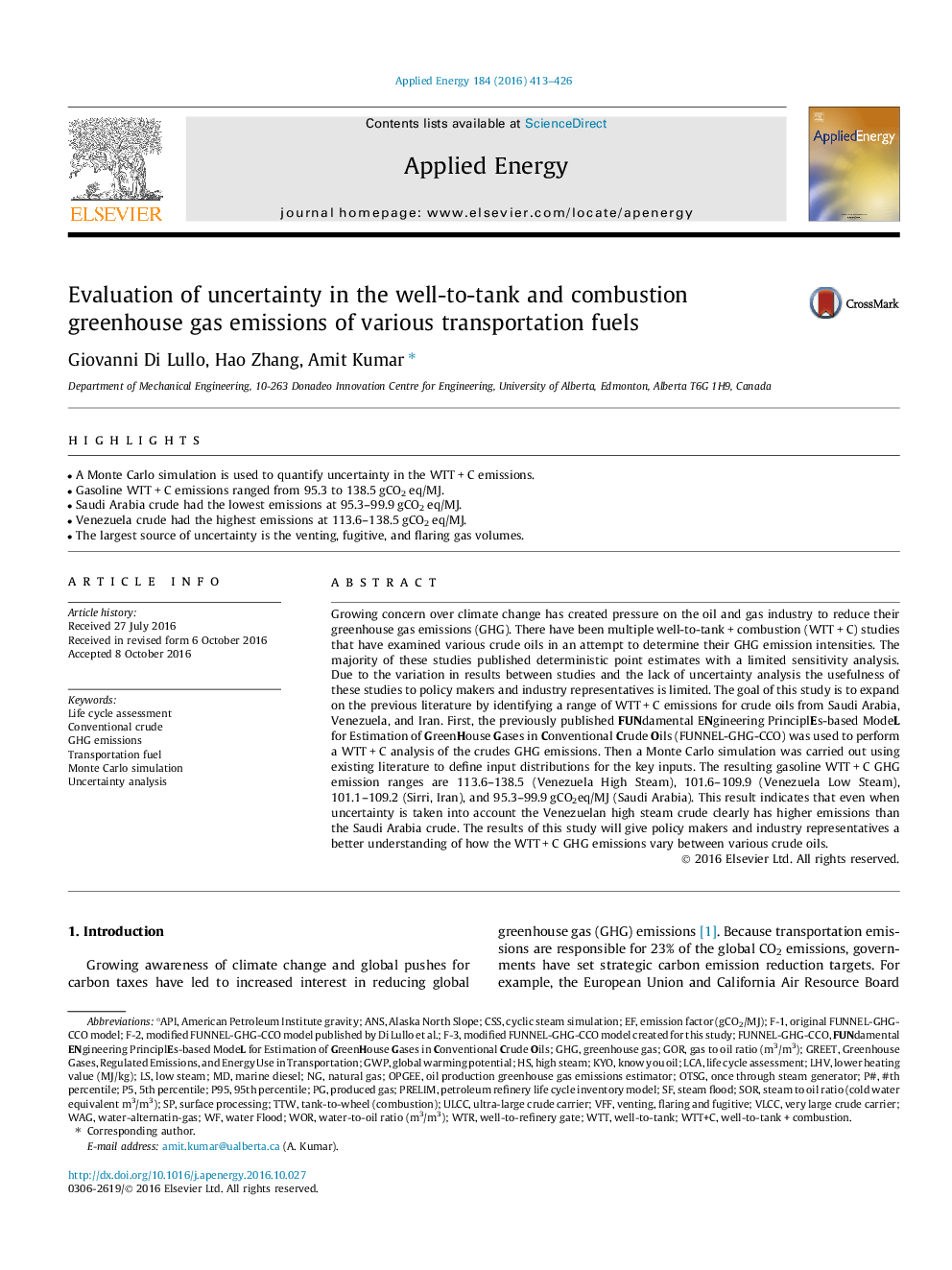| Article ID | Journal | Published Year | Pages | File Type |
|---|---|---|---|---|
| 4916881 | Applied Energy | 2016 | 14 Pages |
Abstract
Growing concern over climate change has created pressure on the oil and gas industry to reduce their greenhouse gas emissions (GHG). There have been multiple well-to-tank + combustion (WTT + C) studies that have examined various crude oils in an attempt to determine their GHG emission intensities. The majority of these studies published deterministic point estimates with a limited sensitivity analysis. Due to the variation in results between studies and the lack of uncertainty analysis the usefulness of these studies to policy makers and industry representatives is limited. The goal of this study is to expand on the previous literature by identifying a range of WTT + C emissions for crude oils from Saudi Arabia, Venezuela, and Iran. First, the previously published FUNdamental ENgineering PrinciplEs-based ModeL for Estimation of GreenHouse Gases in Conventional Crude Oils (FUNNEL-GHG-CCO) was used to perform a WTT + C analysis of the crudes GHG emissions. Then a Monte Carlo simulation was carried out using existing literature to define input distributions for the key inputs. The resulting gasoline WTT + C GHG emission ranges are 113.6-138.5 (Venezuela High Steam), 101.6-109.9 (Venezuela Low Steam), 101.1-109.2 (Sirri, Iran), and 95.3-99.9 gCO2eq/MJ (Saudi Arabia). This result indicates that even when uncertainty is taken into account the Venezuelan high steam crude clearly has higher emissions than the Saudi Arabia crude. The results of this study will give policy makers and industry representatives a better understanding of how the WTT + C GHG emissions vary between various crude oils.
Keywords
OTSGP95WTTTTWGWPULCCVFFGHGWAGAlaska North SlopeLHVWater floodGORCSSSORLCALife Cycle AssessmentGHG emissionsUncertainty analysisWorWell-to-tankMarine dieselMonte Carlo SimulationANSGREETTransportation fuel95th percentileWtrglobal warming potentialSurface processingNatural gasGreenhouse gasGreenhouse Gases, Regulated Emissions, and Energy Use in Transportation
Related Topics
Physical Sciences and Engineering
Energy
Energy Engineering and Power Technology
Authors
Giovanni Di Lullo, Hao Zhang, Amit Kumar,
